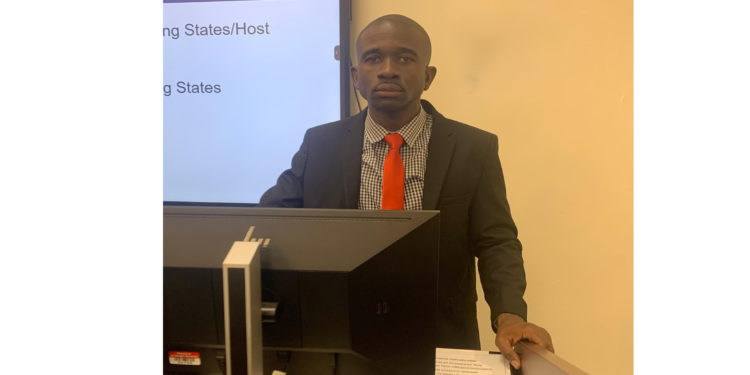The Regional Security System Training Institute (RSS TI) has set out an ambitious
training schedule for 2025, offering 42 specialised courses aimed at strengthening
security across its Member States.
The carefully curated courses will focus on enhancing human capacity and operational
readiness to respond to both current and emerging threats within the region. High-
priority areas such as Cybercrime Investigation; Leadership and Management; Crime
Scene Management; Maritime Operations; Criminal Investigations; Financial Crime and
Asset Recovery; Prosecution, and Instructor Development are some of the topics of
focus.
Assistant Staff Officer with the RSS TI, Dr. Raffie Browne, stated that each course was
tailored to develop the skills, knowledge, and professional attitudes necessary to
improve performance, and address identified capability gaps in law enforcement and
military agencies.
“These offerings were informed by a 2023 Training Needs Assessment (TNA)
conducted across Member States and data provided by the RSS Regional Crime
Observatory. Our curriculum reflects the real challenges which are faced by our Member
States and we have designed each programme to provide practical solutions to
recurring security concerns while equipping participants to handle emerging threats,
such as cybercrime, artificial intelligence risks, and climate-related security issues,” he
outlined, adding that the courses cater to a range of experience levels, from junior ranks
to senior leadership.
The RSS official explained that each programme included a hands-on learning
experience and culminated with the presentation of a certificate upon successful
completion.
“In a major milestone, the RSS TI was approved in August 2024 as a CARICOM
Vocational Qualification (CVQ) Centre by the TVET Council in Barbados. As a result,
participants can now obtain regionally recognised certifications in four disciplines, with
more programmes being added incrementally. Additionally, collaborations with regional
and international tertiary institutions ensure that some courses are offered as certified
programmes of study,” he affirmed.
Dr. Browne also disclosed that the Training Institute was pursuing accreditation with
both the Barbados Accreditation Council (BAC) and the International Association of
Directors of Law Enforcement Standards and Training (IADLEST). He indicated that this
strategic move would cement RSS TI’s position as a regional leader in law enforcement
training.
“The economics of accreditation encompass a complex interplay of costs, benefits, and
return on investment. While the financial investment in accreditation can be significant,
the potential benefits, ranging from enhanced reputation, credited courses that support
our mission, enhanced quality assurance, access to funding and improved institutional
performance, often outweigh the costs,” he underscored.
Dr. Browne stressed that it was not only the RSS TI’s intention to prepare officers to
meet today’s challenges, but also to shape the future of regional security.
RSS









